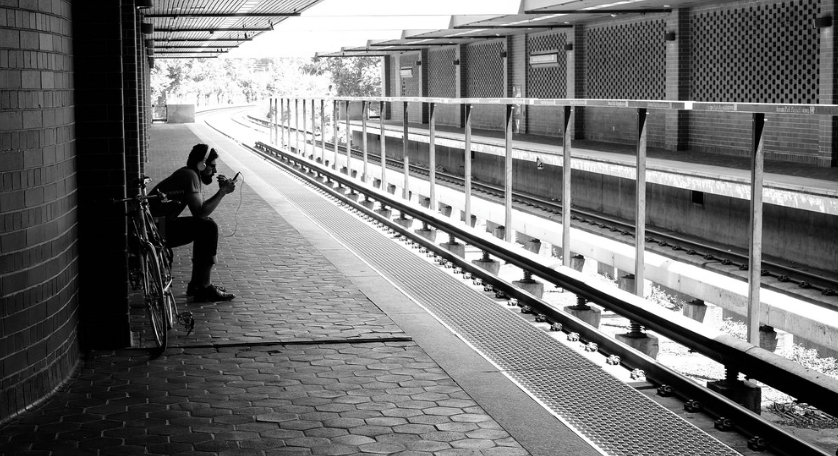Expanding public transportation once again received substantial support in the annual Metro Atlanta Speaks survey from the Atlanta Regional Commission. With traffic topping the list of regional concerns, 48 percent of respondents in the 13-county survey said they supported more transit and would even be willing to pay more in taxes for it. That's roughly on par with responses from 2017 when 49 percent of respondents said expanding public transit was the best long-term fix, but up from just 43 percent in 2016 and 41 percent in 2013, when the survey began. Support was strongest in the city of Atlanta itself and the more populous counties.
The findings reflect a shift in the area where regional public transportation efforts have had to contend with deep-rooted racism. "The survey results come as momentum for expanding mass transit has picked up steam across the region," wrote David Wickert in the Atlanta Journal-Constitution. "Atlanta and Clayton County are finalizing voter-approved transit expansion plans. Gwinnett County voters will decide whether to join MARTA in March. Fulton, DeKalb and Cobb counties also are preparing for transit expansions."
In the past, votes about expanded transit service have been contentious. "Every county in metropolitan Atlanta, with the exception of Fulton and DeKalb, had contentious local debates or referendums on either joining MARTA or establishing an independent, stand-alone transit system," wrote Jason Henderson, a professor with the department of geography and environment at San Francisco State University, in a 2006 paper.
Though the latest survey shows support for expanded transit, that reflects resident attitudes, not necessarily voter attitudes. Next year, voters in Gwinnett County will vote on a one-cent sales tax to fund rail and bus service. Residents there were among the most likely to say that transportation was the number one issue facing the region and roughly half of the survey respondents in Gwinnett County said that they'd be willing to pay more in taxes to fund expanded regional transit, but that's actually a decrease from 2017 when 56 percent of respondents there said the same. Voters there have struck down expanded transit several times over the years.
Still, as the metropolitan area's population grows, sentiment, even in suburban areas, may be shifting. The survey found that the groups most likely to say transportation was the biggest concern for the region tended to be younger, white, male, earning higher incomes and with at least a bachelor's degree. Concerns about access to transit, on the other hand, were more likely to be expressed by older, black, and Latino respondents as well as those with lower educational attainment. Support for expanded public transit drew the strongest responses from women, people in the workforce, people with higher educational attainment and non-white respondents. Other survey findings underscore the need for improved transit options, with roughly 12 percent of respondents saying they frequently lacked the necessary transportation to get to places they needed to go. In the city of Atlanta, that number was 20 percent.
The survey also captured other growing pains. While only a small percentage of respondents ranked the economy among the area's biggest concerns, the responses show some of the region's divides. People with lower incomes and respondents of color were more likely to name the economy as the region's biggest concern. And roughly 17 percent of all respondents said they had skipped meals or reduced portions due to lack of money for food and the vast majority, in a question new to the survey this year, said they paid more than they should for housing, either due to quality of location, lack of affordable housing or other issues.
But the issues of transit and housing didn't seem tightly linked in the responses.
So while expanded transit was the favored choice for tackling traffic problems, only 15 percent of respondents said that developing communities in which people live close to where they work was the best solution. That option was more popular among young people, with roughly 20 percent of people ages 18 to 34 saying it was the best option, compared to only around 14 percent of respondents 65 years and older.
When it came to the region's outlook over the next three to four years, Atlanta residents were the most optimistic. Roughly 42 percent of respondents in the city said they thought living conditions in the region would get better, compared to 28 percent of respondents in the region as a whole. While roughly 27 percent of respondents across the region said they expected things to get worse, the largest share at around 44 percent said they thought things would stay about the same.

